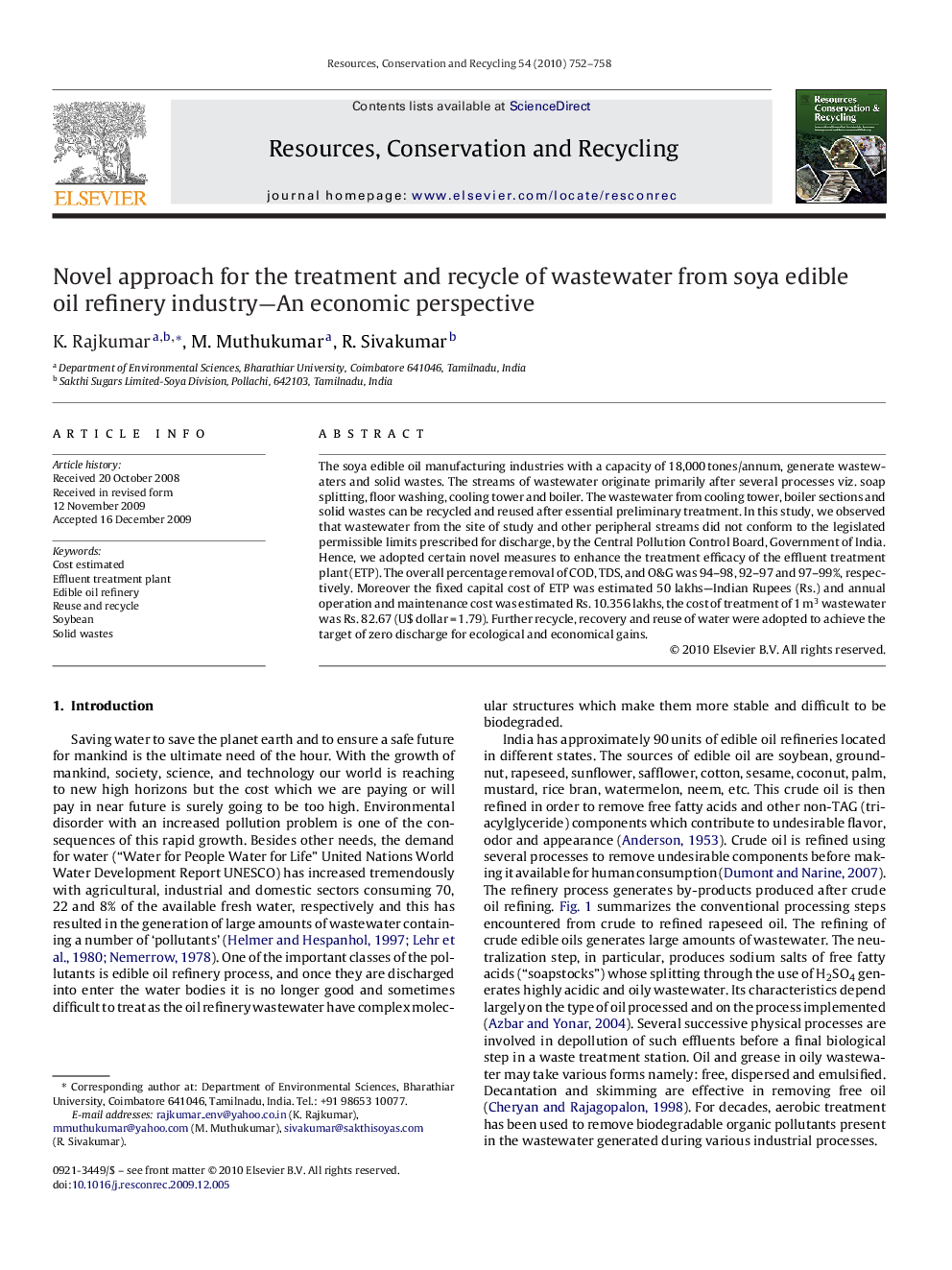| Article ID | Journal | Published Year | Pages | File Type |
|---|---|---|---|---|
| 1063426 | Resources, Conservation and Recycling | 2010 | 7 Pages |
The soya edible oil manufacturing industries with a capacity of 18,000 tones/annum, generate wastewaters and solid wastes. The streams of wastewater originate primarily after several processes viz. soap splitting, floor washing, cooling tower and boiler. The wastewater from cooling tower, boiler sections and solid wastes can be recycled and reused after essential preliminary treatment. In this study, we observed that wastewater from the site of study and other peripheral streams did not conform to the legislated permissible limits prescribed for discharge, by the Central Pollution Control Board, Government of India. Hence, we adopted certain novel measures to enhance the treatment efficacy of the effluent treatment plant (ETP). The overall percentage removal of COD, TDS, and O&G was 94–98, 92–97 and 97–99%, respectively. Moreover the fixed capital cost of ETP was estimated 50 lakhs—Indian Rupees (Rs.) and annual operation and maintenance cost was estimated Rs. 10.356 lakhs, the cost of treatment of 1 m3 wastewater was Rs. 82.67 (U$ dollar = 1.79). Further recycle, recovery and reuse of water were adopted to achieve the target of zero discharge for ecological and economical gains.
